#saint p
Text
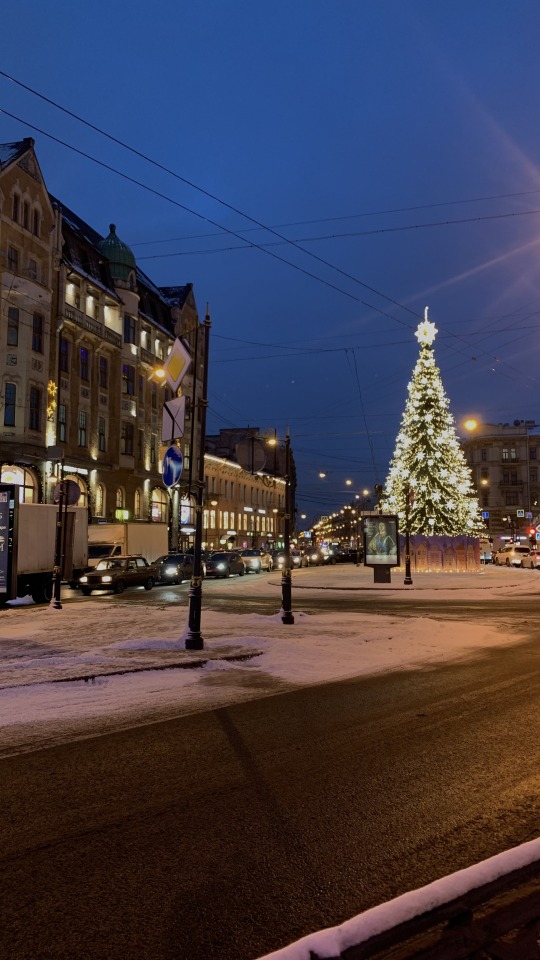

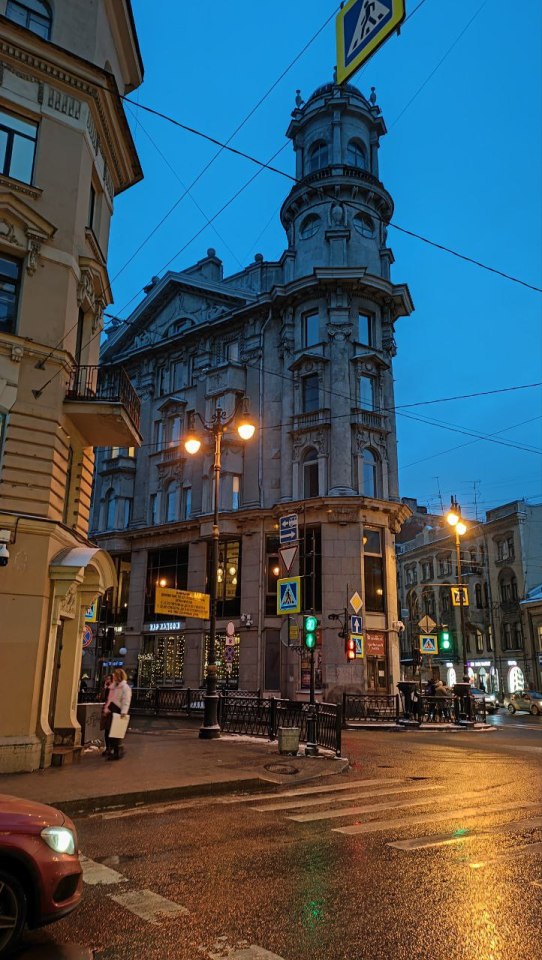

#saint petersburg#saint p#blog#quote#блог#жизнь#мысли#books and libraries#health & fitness#fashion#entrepreneur#business#russia#new year#happy new year 2024#happy new year#new years eve#new years resolution#end of the year
153 notes
·
View notes
Text



the concept of homesickness, all in all, is a wildly interesting thing.
i don't miss winters in Saint-P, it was bloody awful. i'm happy i'm not there anymore, not only because of the weather (-26 Celsuis just recently).
but here, temp dropped into subzero and the wind picked up and it's -1 that feels like -12, and you just get that feeling when you're out in the street and cold biting at your face because you're to cool to wear scarf or hat.
that deception that you're there, but you're not.
(from archives of the great winter sulking. thanks god it's spring again.)
0 notes
Text

🩶
#cod keegan#keegan russ#keegan p russ#cod ghosts#cod#call of duty#art#fanart#99pm#bro cries like a saint
849 notes
·
View notes
Text

Anne Sexton, from The Complete Poems of Anne Sexton; "The Saints Come Marching In,"
#lit#anne sexton#poetry#quotes#words#poetry collection#fragments#excerpts#selections#writings#the saints come marching in#p
513 notes
·
View notes
Text


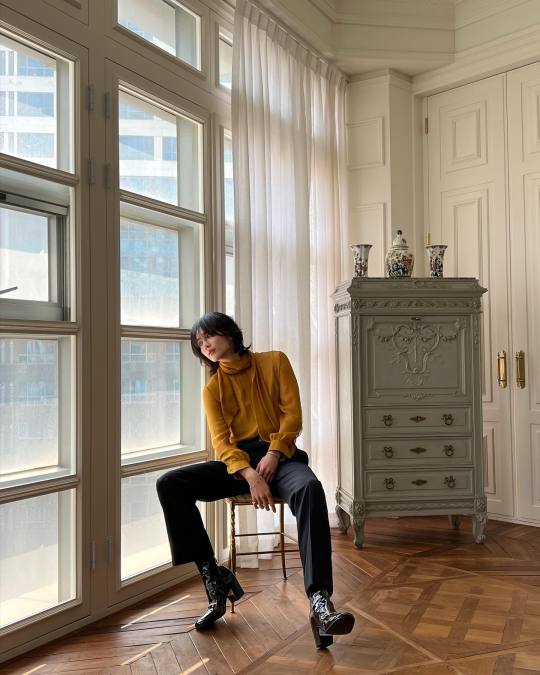
[230419] jeonghaniyoo_n Instagram Update
📸 Behind
486 notes
·
View notes
Text
People who depict Nick as being really lovey with Lynn are really funny bc like
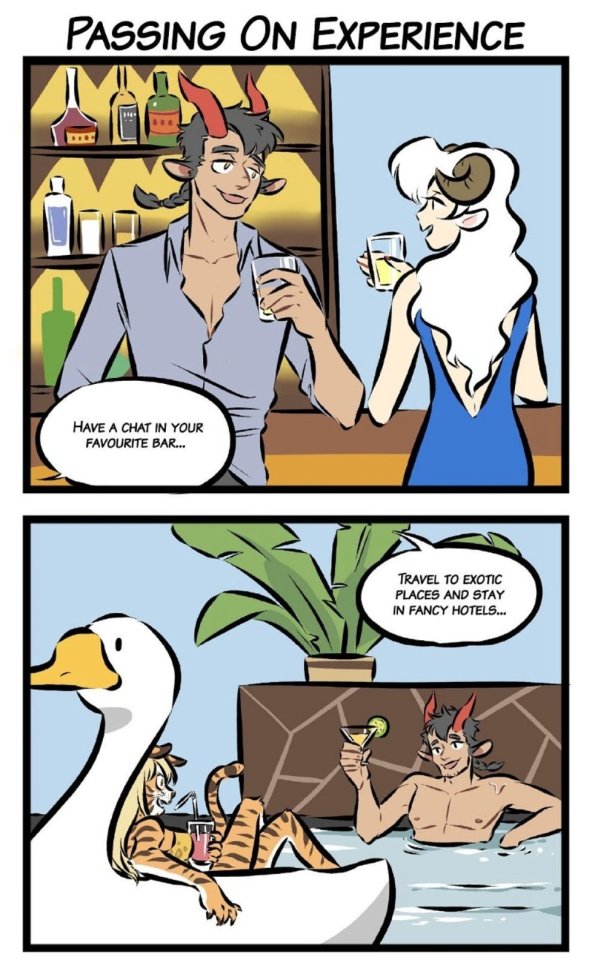


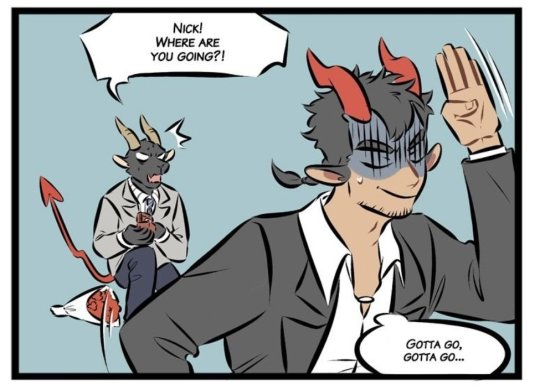
bro does NOT want to be in a relationship
#all saints street#nick hoult#like i'm p sure most of those people have only watched the donghua and never touched the manhua#i mean don't get me wrong i like nick/lynn too but like bro is absolutely NOT lovey#bro just wants to get dicked down by an angel#most lasting relationship he has is with the reaper guy tumblr would go crazy about them if they read the fucking manhua#anyway i was rereading ASS and decided to go through the tag#anyway Nick Hoult is a fucking gringefail bisexual bigender failure
267 notes
·
View notes
Text
Pond did a 1 min long IG live this morning just to show that they’re still at Disneyland today!
Mile and Apo are wearing different outfits from yesterday but they are matching again with Mickey Mouse theme :)

Part of the live where they appear (with english subs) :
Pond: where is Mile? Oh over there.
In the background - Apo : p'mileeeeeeeee
Pond: he's taking photos.
In the background - Apo : ahahahah he's walking and smiling alone ahahahahaha niiiiiiiiiiii
Apo: who are you smiling at?
Mile: there won’t be any good videos
Apo: HAHAHAHAHAHHAHA
Mile was desperate because Apo kept interrupting him while he was trying to take a video lmaooo
#MILE YOU’RE A SAINT#i had already written the dialogue before finding the subbed video so you get both :p#kinnporsche#mileapo#apo nattawin#mile phakphum#mileapo fly to hong kong#disneyland hk
92 notes
·
View notes
Text

Yves Saint Laurent by Horst P. Horst, 1971
115 notes
·
View notes
Text
Joan of Arc study
Last year, I led a small digitial “retreat/study” on Joan of Arc via my Kofi- while my Kofi is no longer running (difficult to keep on top of because of other work obligations), I thought that in honour of her feast day I would make it publicly available. All of the text and resources used are under the cut- you can do this at your own pace, with one topic per week, or any other way you like. It’s to generate personal reflection on gender and one’s relationship to God, and is designed to be completely non-denomination, meaning that while it does use Bible readings, even if you are not a Catholic or a Christian, it should be able to stimulate some thought and reflection without having a definite religious slant.
The topics covered are:
Joan the Warrior
Joan the Androgyne
Joan the Prophet and Mystic
Joan the Disciple
Below the cut you’ll find all of the readings and bonus content for each topic, and at the end are “notes,” a short informal essay consolidating what I’m hoping to share through this study. But I highly encourage you to do your own reflection, be it through journalling, prayer, mediation, or whatever form of self-reflection suits you best, and try to decide what the readings- and Joan herself- says to you.
Ultimately, I hope what you’ll discover through this "retreat" is that our gender identity makes us warriors, prophets, mystics, and disciples- that existing between the binaries imposed on us by patriarchy allows us to draw closer to the strange and wonderful place where God exists.
WEEK 1: Exploring God and Gender with Joan of Arc- Joan the Warrior (readings)
This study pre-supposes that you already have some background on Jehanne and her life- nothing too in-depth, and we'll get into some of the finer points of her life that aren't as popularly known throughout this study. If you'd like more information, I highly recommend Helen Castor's biography and Regine Pernoud's Joan of Arc By Herself and Her Witnesses.
I've mentioned that this is a non-denominational study. What does this mean? Mainly it means that while scripture provides the backbone of a lot of our reading, I don't want us to treat scripture in a Christian context. Rather, I want to treat it primarily as a literary text, and rather than engaging with it as a "Bible study" or theological undertaking, I want to challenge us to read this without any preconceived notions of what it means in a religious context. Rather, read it the way you'd read a novel or short story. How does it make you feel? What themes, motifs, metaphors, allegories, or other literary techniques are employed? What is the text trying to say?
Read:
Judges 4-8: Deborah, Jael, and Gideon
Christine di Pizan's Joan of Arc
excerpts from Jehanne's trial: Joan's Tools
(If you want to read all of Jehanne's trial transcripts, you can do so here- I'll be providing more excerpts over the upcoming weeks, but we won't be reading it in full, so I highly encourage you to read the full transcript on your own if you'd like.)
Consider:
What tools does God give to Deborah and Gideon? Are those tools always weapons? Do they always require public acknowledgement, like Deborah’s tent peg? What tools has God given you? What similarities do you see between the Bible study and Joan? How does Christine di Pizan portray Jehanne in her poem? Is there a similarity between di Pizan's portrayal and the portrayal of the Biblical judges?
Extras:
have a listen of Veni Creator Spiritus- this Latin chant was said to have been sung before every battle by the French army when Jehanne arrived at Orléans on 29 April 1429, legend has it that a choir of priests went before her signing this hymn.
shameless self-plug of my own but much beloved Joan of Arc Spotify playlist
WEEK 2: Exploring God and Gender with Joan of Arc- Joan the Androgyne (readings)
Read:
Judith 8-9
Marina Warner's Joan of Arc: The Image of Female Heroism, Chapter 7: Ideal Androgyne
excerpt's from Jehanne's trial: Jehanne and her gender presentation
Consider:
Last week we considered the tools God gave figures like Jehanne, Gideon, and Deborah. How does Jehanne's gender function as a tool? How does Jehanne view her relationship to gender based on her testimony? How does the idea of her as an androgyne, as opposed to a warrior woman or girl, change your idea of her as a historic figure? How does Jehanne's gender presentation compare to that of Judith?
Extras:
If you haven't seen it already, Carl Dreyer's 1928 masterpiece The Passion of Joan of Arc is available to watch for free on Internet Archive. It is a fascinating, moving, and exceptional portrayal of Jehanne's trial, arguably the best, and it's lead actress Renee Falconetti beautifully captures the idea of Jehanne as the androgyne.
WEEK 2: Exploring God and Gender with Joan of Arc- Joan the Prophet and Mystic
Read:
the Book of Jonah
“Joan of Arc and Female Mysticism” by Anne Llewellyn Barstow
Joan of Arc and her voices
Consider:
Does Jehanne know she is a mystic, a saint, a prophet? What relationship is there between Jehanne's gender and her prophecy? Is Jehanne a true mystic? Why or why not?
WEEK 4: Joan the Disciple
Read:
Luke 8
2 Clement- all if you wish, or just Chapter 12
skim the complete transcript of Jehanne's trial, paying attention to the final day (starting at page 358)
Consider:
Pay special attention to Luke 8: 16-19. How does this apply to Jehanne? More specifically, how does this apply to how she presents her gender. Much criticism in her trial is centered on how she does or does not properly conform to gender. How do these verses, and those in 2 Clement, apply to Jehanne and her treatment by the church?
Bonus:
Jehanne's letters, which are a fascinating look at her voice
Mark Twain's Personal Recollections of Joan of Arc is free to read
Notes:
On April 30, 1429, Joan of Arc- who styled herself Jehanne la Pucelle, or Jehanne the maid- arrived at the French city of Orléans to free it from English control. Orléans had been under siege since October of the previous year: it's commander and French army were exhausted and contemplating surrender.
Enter Jehanne. The story is famous: aged sixteen, she heard the voices of saints and angels commanding her to free France from the English, lift the siege of Orléans, and crown the Dauphin. Remarkably, she succeeded, before being condemned to the stake for heresy by the Church. Her feast day in 30 May.
In our study about Jehanne, we've read portions of Judges. Judges cover a period in Israelite history prior to the establishment of the monarchy of which the famous Davidic monarchy was part. This is a period which roughly corresponds to the historic period 1400–1000 B.C., just after the settlement of Canaan after the Egyptian diaspora, when the Hebrew settlers were living among foreign, polytheistic tribes like the Philistines, who are a major antagonist throughout the narrative. Judges is considered one of the oldest books in the Hebrew bible, with the Song of Deborah- Judges 5- being one of the oldest portions. It documents a tumultuous and frequently violently history marked by agronomic destruction of a society attempting to rebuild after four centuries of indentured servitude to a foreign power, and a struggle to maintain the monotheistic practices which developed in the wake of their diaspora- the Levitical priesthood which we now know as Judaism.
There's a similarity between this era of Israelite history and that which would have been experienced by Jehanne at the time of her call. Jehanne was born in 1412 a working-class peasant girl from Domrémy in the Lorraine region of France. This location was almost directly on the border between French-held lands and those which had been invaded by the English during the course of the Hundred Years' War, which had already been going on since 1337. She was around thirteen years old when she first heard what she described as "voices," in 1425; it was the year that war is first documented to have begun directly affecting her home region, with raids by English or English-back French mercenaries taking place near Domrémy in 1425 and 1428. In once incident the village's cattle were stolen, and in another the town was set on fire and crops destroyed. It isn't difficult to see a similarity between what Jehanne may have felt about her circumstances and that of Gideon:
Gideon answered him, “But sir, if the Lord is with us, why then has all this happened to us? (Judges 6:13)
In the midst of this, Jehanne experienced her first vision- in her father's garden, a voice she identified as Saint Michael the Archangel (a high-ranking angel figure known as the protector of the Jewish nation and later of Christians).
By 1428, Jehanne had apparently begun to formulate what she was being asked to do by her voices, whom she had by then identified as Saint Catherine and Saint Margaret- two early Christian martyrs- in addition to Saint Michael. After being accused of breaking an engagement (a case dismissed by the ecclesiastical court at Tours, but which rather darkly foreshadows the way in which her later trial and execution would inherently punish a wayward "woman"), she became convinced that her voices were telling her to leave Domrémy to aid the Dauphin. It was a remarkable undertaking for a sixteen-year-old peasant girl, illiterate, who had never left her home village. By February of 1428, she had convinced a local nobleman to support her and conduct her to the Dauphin's seat at Chinon. It was at this time that she began to wear men's clothing- an outfit which was provided to her by the local townspeople, and rather famously consisted of a pair of breeches which tied to her jerkin, a costume which made her almost- but not entirely- invulnerable to rape. Like Deborah and Jael, she was endangering herself by entering a world that was dominated by men, and her choice of clothing is evidence of this.
And like the judges we have read about, Jehanne was called from her home village in a period of turmoil to perform what she saw as a sacred duty, something which God had commanded her to do. Like Deborah, she was something of a prophet: she knew that she would see the Dauphin crowned king of France:
And she said, “I will surely go with you; nevertheless, the road on which you are going will not lead to your glory, for the Lord will sell Sisera into the hand of a woman.” (Judges 4:9)
And, like Gideon, she was a working-class farmer called on to lead an army.
He responded, “But sir, how can I deliver Israel? My clan is the weakest in Manasseh, and I am the least in my family.” The Lord said to him, “But I will be with you, and you shall strike down the Midianites, every one of them.” (Judges 6:15-16)
I think these similarities are all the more important this week, as we face the destruction of reproductive rights under Roe vs. Wade and the ongoing victimization of victims of domestic violence. Too frequently Biblical womanhood is cited as an excuse to strip people who are not cishet men of their destiny- to relinquish them to a common denominator, a life of submission and servitude. But what Judges shows us is that God’s call does not discriminate between bodies or genders. A person’s place in the world is wherever God calls them to go. We are allowed to ask for God’s reassurance of his call, but we must remember that if God calls us, he trusts us. We must trust him, and trust ourselves as he justifies us. God’s purpose supersedes the binaries and restraints imposed on us by the world.
Too often we equate "warriorhood" with masculinity, dominance, and activeness. Among Christians the epitome of being a warrior is archetypically defined as avenging angels and violent crusaders, many of whom committed gross atrocities and whose actions characterize a far-right movement of alleged "God-fearing" men who believe in their divine right to power on account of their maleness. Gross and extreme conservatism characterizes much of the front-facing presence of Christianity, it is this fundamentalism which we now see strongly affects political process. But God does not pick warriors from the strongest of his believers. David was the youngest son of Jesse. Gideon too. Deborah and Jael were women. God's warriors are those who listen to him: their strength lies in their difference. Consider how you are a warrior- not how you can be one, but how you already are one. Your God-given difference is your destiny: what makes you strong and extraordinary. How does your difference make you a warrior?
Last summer, I took a course on understanding scripture through how it is depicted in art. One week was completely devoted to paintings of Judith and Deborah, and we were assigned to read portions of both Judges and Judith. Funnily enough, we all struggled to tell the difference between depictions of the two women. Unlike Judges, the book of Judith is considered deuterocanonical, and it is not included in the Protestant canon: this could be part of why paintings of Judith and Deborah are frequently confused. But you can always tell the difference between the two in a very simple way. If it’s a woman beheading a man, it’s Judith. If it’s a woman with a hammer, it’s Deborah.
Both depictions of these warrior-prophet-women are marked by the violence of the acts they carry out at God’s call. They are associated heavily with the weapons with which they carry those acts out. It’s a very different image of women than we often associate with Biblical womanhood. Biblical womanhood is frequently associated with attributes like mildness, compliance, domesticity, motherhood, and submission. Biblical and traditional womanhood have become synonymous and conservative. It is heavily binarized, and placed firmly below dominant patriarchal structures.
Yet this view of “Biblical womanhood” doesn’t really hold up to the women we have encountered in the Bible- and it doesn’t hold up with our understanding of Jehanne. A question I want us to ponder this week is what actually constitutes Biblical womanhood? It’s a question that’s going to follow us as we continue this month-long study. Jehanne was condemned to death on account of not being a “real” woman. She was fully equipped to carry out what God asked of her, but she was still condemned for not being the "right" kind of person for her gender presentation.
I would argue that part of her equipment was the fact that she was someone who existed between genders, neither male nor female. But Jehanne was also both male and female. We have words for this now- nonbinary, gender non-conforming, transgender, and many others- but I don't think they help us much when we try and understand the complexity of gender in a time when gender was binary. Yet Jehanne shows evidence that she understood her gender as being other. Her trial transcripts reveal that she attributed no real gender alignment to herself or her presentation: her clothes were chosen for practicality, and that was necessary to fulfill the destiny which she felt had been given her.
How does our gender and our gender presentation function as a tool for our god-given purpose? For many people gender presentation is a tool that helps them to feel more comfortable in their own bodies, to convey to the world who they are. It is a tool that can heal one's relationship to their gender. Our purpose, our fate for which we are given "tools" does not have to be as grand as saving France or the world: it can simply be something intended to save ourselves. Sometimes saving oneself is the greatest mission God gave us- something we are given through his deep love for us.
244 notes
·
View notes
Text

Недавно поняла: мое прошлогоднее желание, загаданное под бой курантов сбылось.
Я, конечно, подразумевала немного другое. Хотя какая разница, если результат тот же?
Вселенной ведь виднее
#blog#quote#блог#жизнь#мысли#russia#fashion#new year#thoughts#life#Christmas tree#new year wish#2024#new year 2024#zelinski & rozen#christmas#wish#saint p#saint petersburg
2 notes
·
View notes
Text

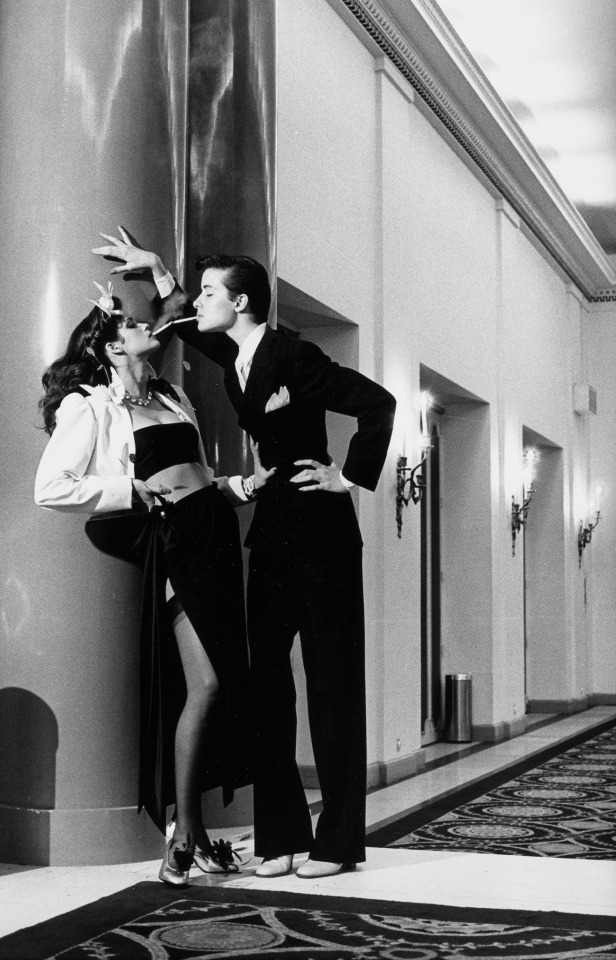
Horst P. Horst for Vogue (July 1935)
Helmut Newton for Vogue Paris (March 1979)
#i’ve connected the dots#horst p. horst#evelyne greig#dress by#lanvin#vogue#1935#helmut newton#1979#1970s fashion#vogue paris#Gia carangi#yves saint laurent#Robin Osler#woman into man#fashion photography#1930s fashion#b&w
134 notes
·
View notes
Note
Yeah, now I realize that Peggy embodies "white feminism". Which I never liked any way because I'm an Eastern woman, and I've watched a lot of Eastern media that has strong ladies that are VERY well written compared to how white Western women are written. I wish Hollywood could stop this "white feminism" bs and watch a bit of Eastern media to see how feminism actually works, but it's obvious that they won't do that...
(Link to other Anon ask about this very subject 👆)
It's even worse than white feminism with Peggy because white feminism implies she at least sticks up for other white women, but instead Peggy really only cares about herself?
You've got her, for example, telling a male colleague not to speak up for women (plural) getting recognition in the workplace because she (upper class white woman, singular) knows her value, and hers is the only opinion that matters.
You've got men (Steve and Edwin Jarvis) realising that, because of her ego, the only way to make her go along with a plan is to kiss her ass / make her think it was her own idea.
In her show, you've got her not befriending a whole floor full of female (white) blue-collar agents in favour of putting civilian (white, blue-collar) women's lives in danger, unncessarily and repeatedly, because she wants someone to serve her. (Her only female friends are servants or villains. And they never address it in-show, but the real reason non-white women don't appear in AC is because their mere existence would reveal Peggy's whining about being discriminated against as deluded.)
In What If... they've got her stealing the plots and agency of other (white) female characters, (whose only job is now to kiss her ass and be sidekicks in what was previously their own story), as well as her relegating WOC to the role of her sidekick, etc. in stories there was no reason for her, specifically to be in.
(Plus there's the tradwife-ism of her entire existence centering on a man and that man's interest in her and her getting that man at the expense of all his other relationships. Take Captain America away and she has no significance at all.)
After What If...?, she now fully embodies the Mary Sue self-insert of a white woman who believes the universe should revolve around her.
#anti what if#toAyourQ#dat's me#hey nonny#antipeggy#antisteggy#cynthia glass#p*ggy meta#mcu critical#steggy is hydra trash party#meta#mcu meta#remember when t'challa was starlord#and they had people fangirling when they met him... as a JOKE? it was supposed to be FUNNY?#like they knew it was preposterous for a character to be treated this way??#not with saint margaret. with saint margaret they treat that same idiotic thing as if it's completely rational.#they think they can make a character competent and impressive just by having (actually competent and impressive) characters kiss their ass#but that's not how that works
61 notes
·
View notes
Text
Does anyone have a pdf of Six Months Can Change so Much When You're a Demigod by uptoolate? Its been years since it was deleted but I still think about it like all the time.
#jasico#old timer jasico fans i need ur help#pjo#jason grace#nico di angelo#also if anyone wants to talk abt this old ass fic w me...#nico with the saint christopher medallion u will be missed#i checked the internet archive but the saves from 2015 is blocked by ao3s consent page#clicking proceed leads to ao3 error page not found ;_;#maybe i could message the author but it doesnt look like theyre active anymore#lol someone else on reddit is desperately searchjng for this fic too; p recently at that. lilli we are one and the same
37 notes
·
View notes
Text

Anne Sexton, from The Complete Poems of Anne Sexton; "The Saints Come Marching In,"
146 notes
·
View notes
Text
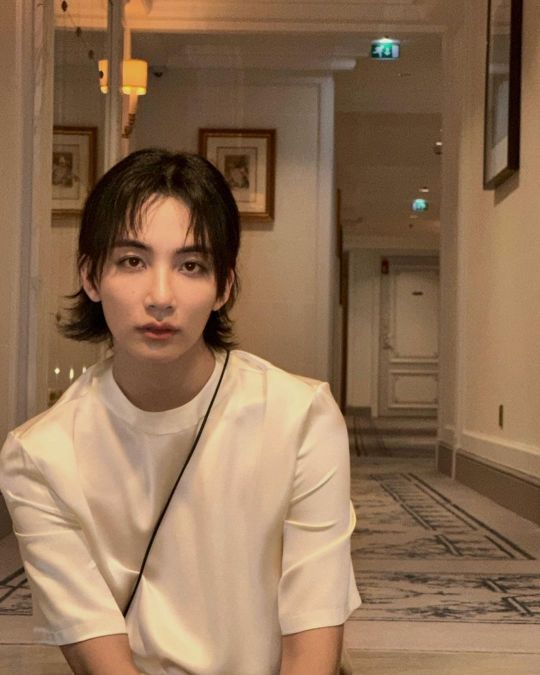
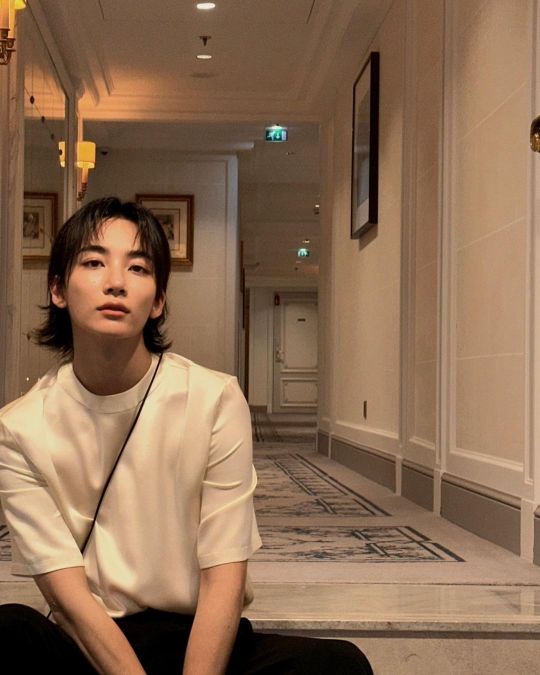


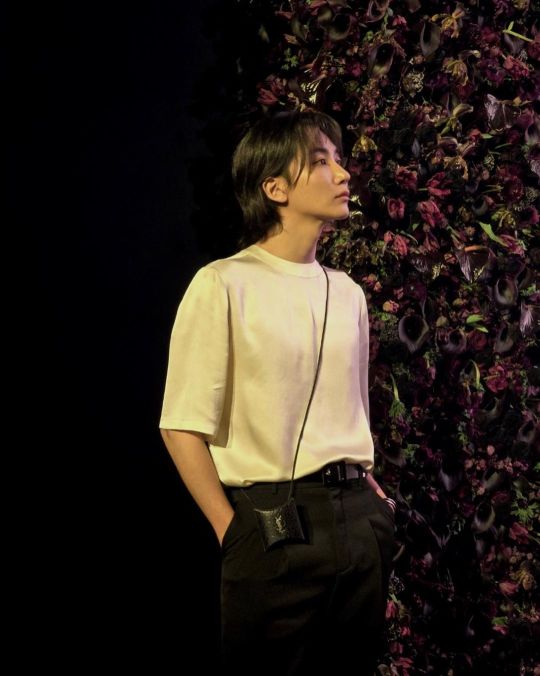

[240306] jeonghaniyoo_n Instagram Update
SAINT LAURENT SHOW. MEN'S FW24 PARIS sophisticated😎
75 notes
·
View notes
